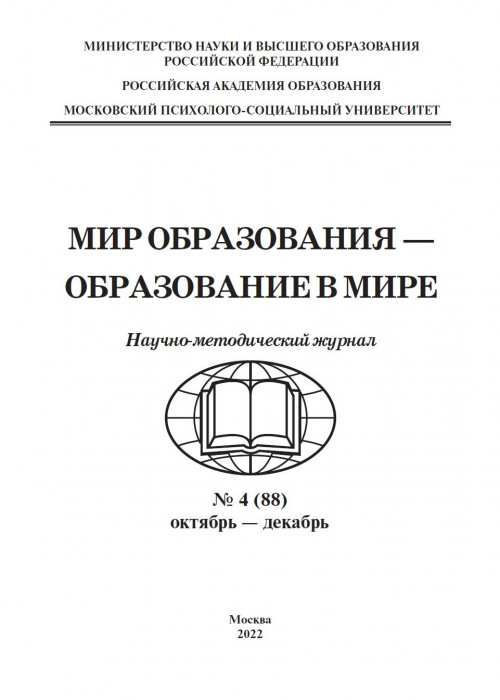Library
1. 20. Novak J. D. Learning how to learn [Electronic resource] / J. D. Novak, D. B. Gowin. — New York: Cambridge University Press, 1984 [Electronic resource]. — Mode of access: <a href="https://www." target="_blank">https://www.</a> cambridge.org/core/books/learning-how-to-learn/D4E082D454735D8CC7FED
2. 19. Novak J. D. The Theory Underlying Concept Maps and How to Construct and Use Them / J. D. Novak, A. J. Cañas. [Electronic resource]. — Mode of access: <a href="http://cmap.ihmc.us/" target="_blank">http://cmap.ihmc.us/</a> publications/researchpapers/theorycmaps/TheoryUnderlyingConceptMaps.bck-11-01-06
3. 18. Meenderink B. Individual versus collaborative concept mapping in a simulation-based inquiry learning environment (Master’s essay) / B. Meenderink. [Electronic resource]. — Mode of access: <a href="https://essay.utwente.nl/74422/1/Meenderink_MA_BMS.pdf" target="_blank">https://essay.utwente.nl/74422/1/Meenderink_MA_BMS.pdf</a> (date of
4. 17. Kwon S. Y. The comparative effect of individually-constructed vs. collaboratively-constructed computer-based concept maps / S. Y. Kwon, L. Cifuentes // Computers & Education. — 2009. — № 52(2). — P. 365–375 [Electronic resource]. — Mode of access: htt
5. 16. Kwon S. Y. Using computers to individually-generate vs. collaboratively-generate concept maps / S. Y. Kwon, L. Cifuentes // Journal of Educational Technology & Society. — 2007. — № 10(4). — P. 269–280 [Electronic resource]. — Mode of access: <a href="https://w" target="_blank">https://w</a>
6. 15. Khrais H. The outcomes of integrating concept mapping in nursing education: an integrative review / H. Khrais, A. Saleh // Open Journal of Nursing. — 2017. — № 7. — P. 1335–1347 [Electronic resource]. — Mode of access: <a href="https://www.researchgate.net/pub" target="_blank">https://www.researchgate.net/pub</a>
7. 14. Holmes S. C. Examining the effect of group assignment on upper elementary students’ experiences in a technology-mediated collaborative compositional activity: Dissertation / S. C. Holmes. — Georgia State University, 2019 [Electronic resource]. — Mode
8. 13. Henige K. Use of concept mapping in an undergraduate introductory exercise physiology course / K. Henige // Advances in Physiology Education. — 2012. — № 36 (3). — P. 197–206 [Electronic resource]. — Mode of access: <a href="https://www.researchgate.net/public" target="_blank">https://www.researchgate.net/public</a>
9. 12. Gonzalez H. L. Mediated learning experience and concept maps: a pedagogical tool for achieving meaningful learning in medical physiology students / H. L. Gonzalez, A. P. Palencia, L. A. Umana, L. Galindo, L. A. Villafrade // Adv Physiol Educ. — 2008.
10. 11. Ghorai S. Effect of concept mapping teaching strategy on physical science achievement in relation to intelligence level / S. Ghorai, A. Guha // International Journal for Research in Engineering Application & Management/ — 2018. — 4(5). — P. 219–225 [E
11. 10. Dhull P. (2020). Use of Concept Mapping for Teaching Science / P. Dhull, G. Verma // The International journal of analytical and experimental modal analysis. — 2020. — XII (III). — P. 2481–2491 [Electronic resource]. — Mode of access: <a href="https://www.rese" target="_blank">https://www.rese</a>
12. 9. Coffey J. W. A concept-map based knowledge modeling approach to expert knowledge sharing / J. W. Coffey, R. R. Hoffman, A. J. Cañas, K. M. Ford. [Electronic resource]. — Mode of access: <a href="https://www.researchgate.net/publication/31993142_Concept_Map-Base" target="_blank">https://www.researchgate.net/publication/31993142_Concept_Map-Base</a>
13. 8. Beirute L. Los mapas conceptuales herramienta poderosa en la resolución alternativa de conflictos / L. Beirute, L. F. Mayorga // Cañas A. J., Novak J. D., González F. M. (Eds.) Concept maps: Theory, methodology, technology. Proceedings of the 1st inter
14. 7. Руднева Ю. А. Ценностно-смысловые аспекты воспитания профессионального мировоззрения будущих педагогов / Ю. А. Руднева, Н. А. Гущина // Новое в психолого-педагогических исследованиях. — 2022. — № 1 (64). — С. 104–112. — DOI: 10.51944/20722516_2022_1_10
15. 6. Разумова Г. В. Методы исследования готовности к инновационной деятельности в области образования / Г. В. Разумова, Н. А. Гущина, Е. И. Тарасова // Мир образования — образование в мире. — 2015. — № 3. — С. 234–239 [Электронный ресурс]. — Режим доступа:
16. 5. Завоеванная Н. С. Профессиональная готовность: краткая история, основные понятия и подходы к изучению / Н. С. Завоеванная // Наука. Мысль: электронный периодический журнал. — 2014. — № 11 [Электронный ресурс]. — Режим доступа: <a href="https://cyberleninka." target="_blank">https://cyberleninka.</a> ru/
17. 4. Бершадский М. Е. Психолого-педагогические основания метода карт понятий / М. Е. Бершадский // Школьные технологии. — 2010. — № 1 [Электронный ресурс]. — Режим доступа: <a href="https://cyberleninka.ru/article/n/psihologo-pedagogicheskie-osnovaniya-metodakart-po" target="_blank">https://cyberleninka.ru/article/n/psihologo-pedagogicheskie-osnovaniya-metodakart-po</a>
18. 3. Астахова Л. Г. Формирование профессиональной готовности студентов к психолого-педагогическому сопровождению обучающихся с ОВЗ / Л. Г. Астахова // Научные труды Калуж. гос. ун-та им. К. Э. Циолковского. Серия: Психолого-педагогические науки. — Калуга, 2
19. 2. Астахова Л. Г. Использование интеллект-карт в процессе формирования когнитивного компонента готовности студентов к будущей профессиональной деятельности / Л. Г. Астахова // Известия Российской академии образования. — 2021. — № 3. — С. 183–193. DOI: 10.
20. 1. Астахова Л. Г. Использование карт понятий в процессе оценивания уровня знаний студентами / Л. Г. Астахова, А. В. Астахов // Вестник Калужского университета — 2018. — № 3. — С. 92–96.
